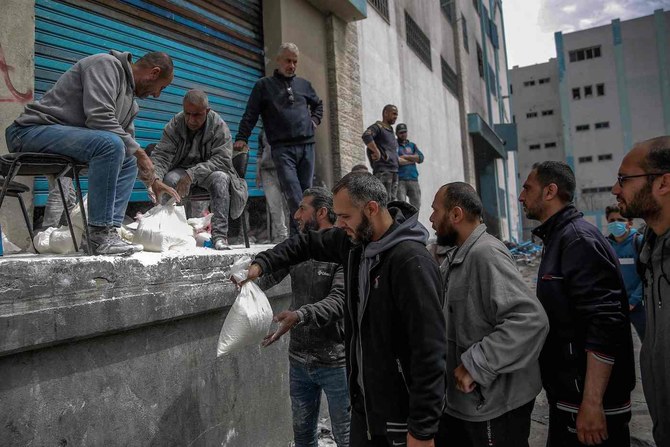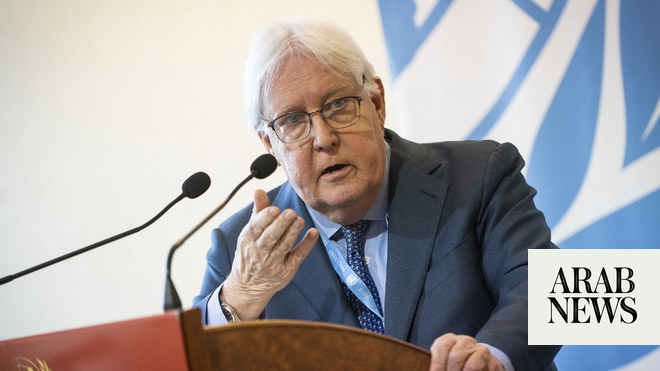
Fishermen risk being shot, arrested and having their catch confiscated Palestinians’ farming, imports cannot meet a 12,000-ton shortfall
GAZA CITY: Palestinians stand on the sides of tanks at Al-Bahar Fish Farm, waiting to pick up sea bream to cook at home, or have gutted and grilled in the adjoining restaurant.
Al-Bahar is one of three fish farms in the Gaza Strip adjacent to the Mediterranean, which were started by Palestinian investors to meet local market needs.
The fish is farmed in special tanks containing salt or freshwater, equipped with oxygen pumps and water purification devices.
Yasser Al-Hajj, the owner of Al-Bahar Farm, said that he started the project about six years ago because of local market needs and “the restrictions imposed on” the fishing industry.
He said that he chose bream because they are easier and cheaper to breed, compared to other species. There is, however, little experience of raising them in tanks.
The Palestinians have started these projects because of Israel’s restrictions over several years. An exclusion zone policed by Israel limits the industry’s range to between 10 and 20 kilometers off Gaza’s coast.
Fishermen risk being shot, arrested and having their catch confiscated.
“I’ve been buying fish from the farm here regularly, once or twice a week for years, sometimes it’s prepared at home and sometimes I ask them in the restaurant to prepare it for me before I take it home,” said Mahmoud Ghaly, 52, a customer at Al-Bahar farm.
“I can see what is caught in front of my eyes and it is fresh and tasty fish at the same time, other than what is in the market, which I can’t be sure was freshly caught. Besides, my family loves sea bream,” Ghaly added.
According to the Palestinian Ministry of Agriculture, Palestinian fishermen catch about 4,500 tons of fish, while local farms produce about 620 tons, about 1,500 tons are imported from Egypt annually, and several thousand tons of frozen fish are bought from other international sources.
The Gaza Strip needs about 26,000 tons of fish annually, at a rate of 13 kilograms per person, but there is a shortfall of 12,000 tons that is not met by fish caught, farmed and imported.
Walid Thabet, general director of fisheries at the Ministry of Agriculture in Gaza, said: “The permitted area for fishing in the Gaza Strip is limited, and the number of fishermen is also small, in addition to the fact that the Mediterranean is one of the poorest seas for fishing.”
Thabet added: “If the blockade is lifted and fishermen are allowed access to larger areas to fish and equipment is allowed to enter freely, the catches will double dramatically.”
In addition, annually 800 tons of the fish caught in Gaza and produced at the farms are sold at West Bank markets.
Thabet said the ministry allows fish to be imported from Egypt at reasonable prices for the local market, in exchange for allowing some to be sold in the West Bank. This creates a situation where local fisherman are supported and their catches bought at better prices.
About 4,000 Palestinians and their families in the Gaza Strip depend on fishing as a source of income.
The Food and Agriculture Organization of the UN funded in 2020 offshore marine cages in Gaza’s waters as part of efforts to strengthen the resilience of Gaza’s fishing communities.
The marine cage farm produces around 120 to 150 tons of sea bream per year, contributing about 5 percent to the local fish market.
Ciro Fiorillo, head of the FAO office in the West Bank and Gaza Strip, said these projects would increase profits that can be reinvested in the industry.












